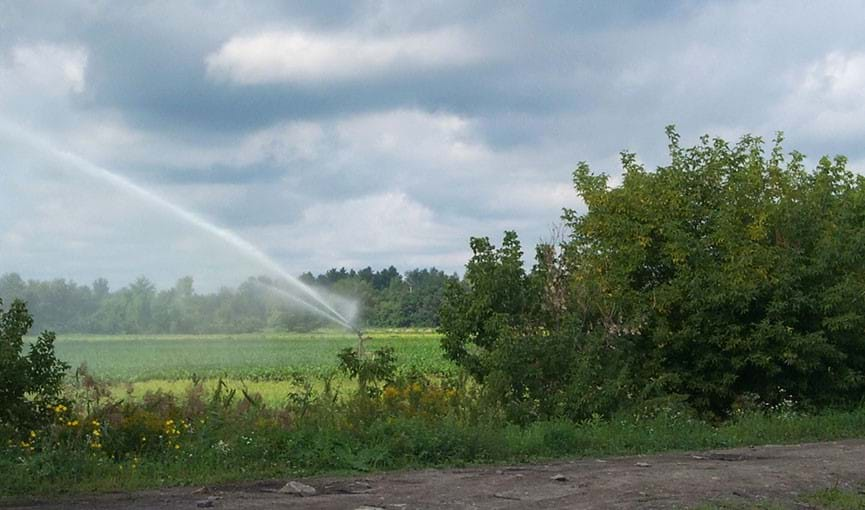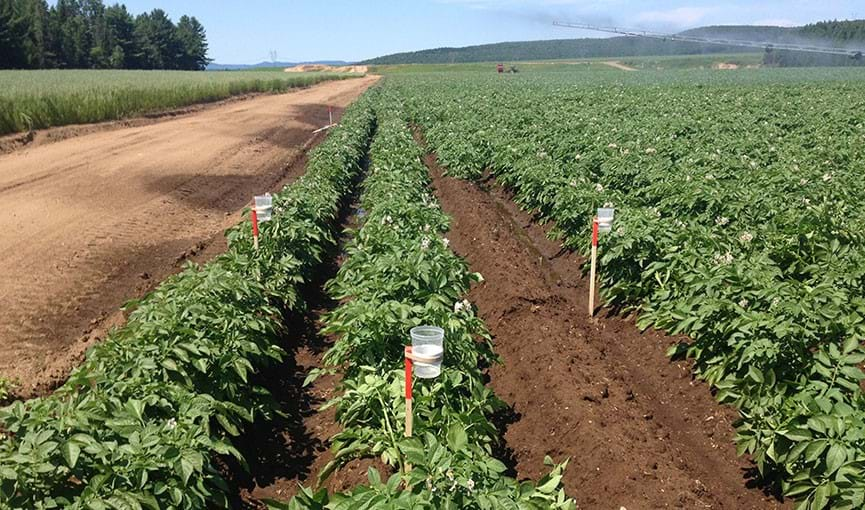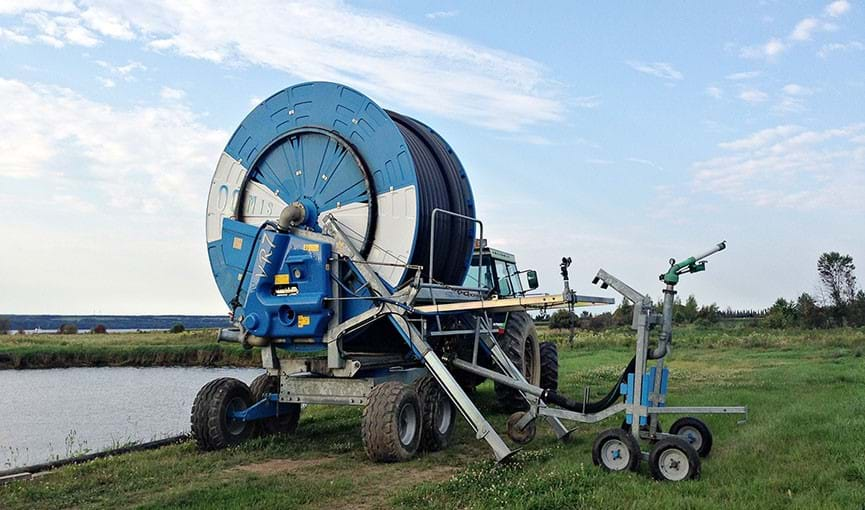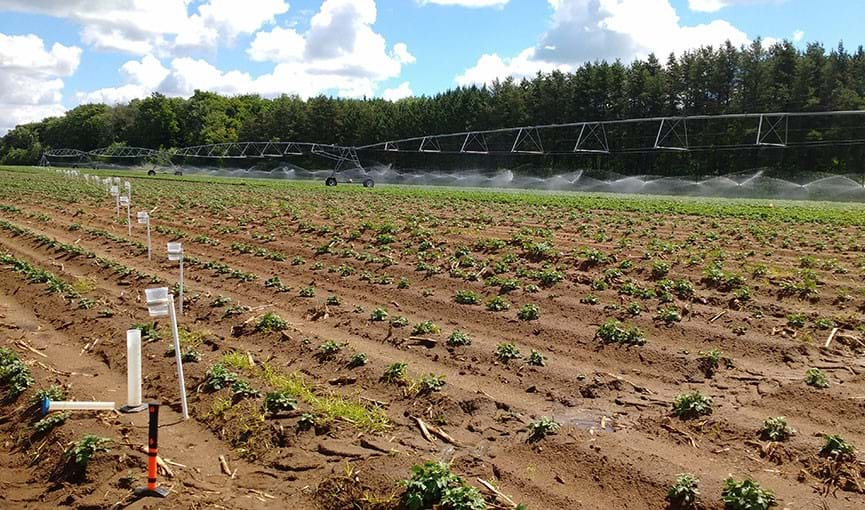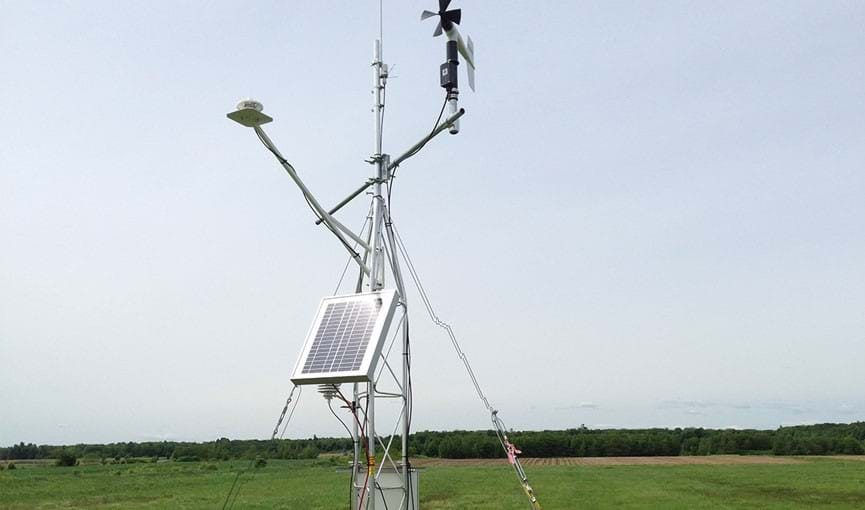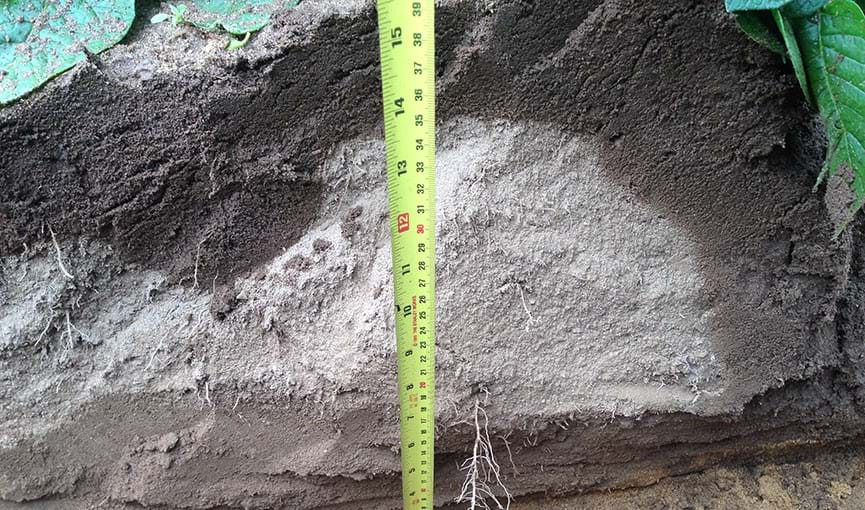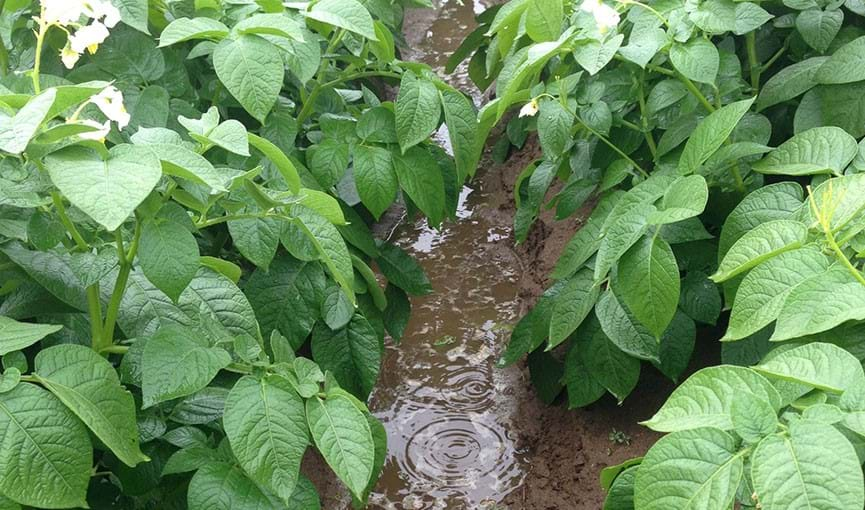A scarce resource
Accessing sufficient amounts of quality water for crop irrigation, however, can be a challenge. Sometimes a farm’s location means there are supply constraints; in other cases, regulations may restrict usage in a bid to conserve water, especially when human consumption or food processing is involved.
By taking crop requirements into consideration, IRDA helps farmers improve water-use efficiency in order to achieve optimal crop yields, prevent usage conflicts, and minimize the risk of nitrate leaching. The strategies implemented—working with water usage, tillage, equipment performance, and fertilizer placement—enable proper nutrient extraction for a wide range of crops and cultivars.
Collaborating with farmers
To simulate real conditions IRDA’s irrigation R&D projects are set up right on partner farms. The latter benefit from proposals that address their main issues, such as, when to commence irrigation, the duration of irrigation periods, the optimal pressure needed, the right drip-irrigation tubing length to use, or the best overlap patterns to use with portable spray equipment.
Farmers who apply sound irrigation management by adopting IRDA’s proposed crop practices make better use of water, reduce fertilizer usage, and increase crop yields. Over the long term, they are able to free up additional land for crop rotation, which improves soil health.


